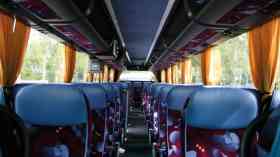Academies: Changing the school procurement landscape
 As of 1 March 2012 there were 1635 academies open in England. The huge increase in the number of schools that have become academies or are about to become academies will not just change things teachers and pupils. It will also change how schools do business – and how organisations, including local authorities, need to approach doing business with them. Whereas local authorities were previously the sole suppliers of many goods and services to local authority schools, academies are now able to “shop around” for many of these goods and services. To use the language of an old friend, the SWOT analysis, these changes will present some opportunities and some threats for all parties concerned: for local authorities, for businesses and organisations hoping to move into this emerging, widened market and importantly for the academies themselves.
As of 1 March 2012 there were 1635 academies open in England. The huge increase in the number of schools that have become academies or are about to become academies will not just change things teachers and pupils. It will also change how schools do business – and how organisations, including local authorities, need to approach doing business with them. Whereas local authorities were previously the sole suppliers of many goods and services to local authority schools, academies are now able to “shop around” for many of these goods and services. To use the language of an old friend, the SWOT analysis, these changes will present some opportunities and some threats for all parties concerned: for local authorities, for businesses and organisations hoping to move into this emerging, widened market and importantly for the academies themselves.
Local authorities may need to address a sudden worsening in their customary economies of scale if the new academies in their area choose not to continue using them as their main supplier for various goods and services. They will need to undertake thorough a businesslike review of provision and what they can offer those schools which remain dependent on the local authority – and potentially any academies that might be “wooed” back in the future.
For businesses and organisations moving into the emerging markets of supply to academies a consideration will be the need to understand how academies’ decision-making processes work. To this end, a basic understanding of academies’ governance arrangements will be important. But they will also need to be aware of the underlying considerations that follow from the fact that academies’ main source of funding is from the public purse.
The burgeoning growth in the number of schools converting to academy status will mean that a large number of new individuals – from business and from the community at large – will be drawn into these schools’ governing bodies. Many of these may find that although they may be experts in their field, this could be the first time they have worked in the provision of public sector education, a with an ethos that is about the public good over and above profit.
Many schools converting to academy status have been excited by their new freedom to choose suppliers. Some schools have made it clear that they think they can secure better deals than they had previously from their local authority. Not all will have fully appreciated, however, the economies of scale and bigger “clout” that comes with being a part of a local authority purchaser compared with those of only one school on its own. There is also the issue of the expertise and market knowledge which the local authority will have had and the new academy might not. Some academies, for example, have already fallen into the trap of misunderstanding the terms and conditions – and the different kinds – of leases for equipment such as IT and photocopying and are said to have become locked into expensive and inappropriate contracts for years to come.
These points seem clear enough and have had some mentions in discussions in the education press. But there are less obvious pitfalls too. Academies do have greater policy and financial independence – but they are still funded primarily from public, ie, taxpayers’, money. Academies are required to take steps to maximise value for money through ensuring that the objects of the academy are delivered “in the most economical, efficient and effective way, within available resources, and with independent validation of performance”.
If the spending of public funds is seriously mishandled, there can be some considerable reputational risks. Those following the education news back in the 1990s may still remember the head-teacher who used school funds for personal holidays, luxury cars, trips on the Orient Express and most famously “90 pairs of shoes; enough to make Imelda Marcos proud,” while the pupils were left without books or heat. Her spending spree went unnoticed for five years - but it ended with her arrest as front page news.
The governors will need to remember that they have a duty to take appropriate action if or when there are any concerns about the running of the academy that cannot be resolved. These concerns should be recorded in minutes of the meeting at which they are raised. If an academy has a sponsor or sponsors, those individuals or organisations are also responsible for ensuring the good use of public funds, in addition to levering in other finance and resources when needed
Julius Caesar’s famous comment on rumours about his wife – that “Caesar’s wife must be above suspicion” has been applied to many situations over the years and has some resonance here. Clear and transparent accountability is the key for academies’ use of public funds to be – and to be seen to be – above suspicion. CIPFA’s Guide to Effective Governance and financial management in academies has lots guidance on this.
Academies are charitable companies limited by guarantee. So as directors of the company limited by guarantee and trustees of the academy trust, the obligations to protect the assets, property and good name of the charity rest with the school’s governing body. One way that academies of bolstering the governors’ ability to carry out these obligations is to consider co-opting to academy committees individuals who are not members of the governing but who have particular skills and interests and can provide a wider range of expertise than may be available from within the governing body itself. Then the academy’s governors – and those organisations with whom they deal – can have a greater confidence that agreements entered into are unlikely to experience unwelcome consequences. L
About the Author
Lesley Lodge is finance and policy manager. local government, at CIPFA - the Chartered Institute of Public Finance & Accountancy.
For more information
Tel: 01582 882193
lesley.lodge@cipfa.org.uk
Latest News
29/10/2025 - 09:19
Estimated data from the Department for Education reveals that 470,000 pupils under 16s use local authority funded transport to get to school.
28/10/2025 - 09:29
Timeline set for removal of Reinforced Autoclaved Aerated Concrete
27/10/2025 - 14:37
The charter aims to make food education for children and young people a priority and act as a catalyst for change, improving provision in Bristol and beyond.
27/10/2025 - 09:30
Both unions announce formal support of NAHT’s legal action against Ofsted and its proposed new framework.
27/10/2025 - 09:14
A new Child of the North (CotN) report warns that the special educational needs and disabilities (SEND) system faces ‘a worsening crisis’.







